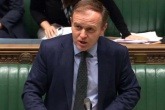Report outlines measures necessary for EU to achieve 2030 food waste goals
A report released by WWF and the Waste and Resources Action Programme (WRAP) yesterday (1 July) outlines the measures that need to be taken within the EU to halve food waste by 2030, in accordance with the UN’s Sustainable Development Goal (SDG) 13.1.
Food waste costs the EU economy an estimated €143 billion per year, and is responsible for 15 per cent of all greenhouse gas emissions associated with the food supply chain. Eliminating food loss and waste as much as possible is an important step towards a more sustainable food system in the EU, and is a key element of the Farm to Fork Strategy.
 The WWF and WRAP report analyses the EU’s progress towards Food Loss and Waste (FLW) goals, and issues guidance for governments, industry, researchers and NGOs on how to reach this target. Despite the EU’s actions to reduce FLW and has announced further work on its Farm to Fork Strategy, the report claims that a ‘pace change’ is needed if SDG goals are to be achieved.
The WWF and WRAP report analyses the EU’s progress towards Food Loss and Waste (FLW) goals, and issues guidance for governments, industry, researchers and NGOs on how to reach this target. Despite the EU’s actions to reduce FLW and has announced further work on its Farm to Fork Strategy, the report claims that a ‘pace change’ is needed if SDG goals are to be achieved.
WWF and WRAP identify key areas with untapped potential to substantially reduce FLW across the supply chain, and where actions should be bolstered with a more conducive EU policy framework.
Member states are urged in the report to ensure a greater level of consistency in the measurement of FLW, reporting these back to the EU in mid-2022 in order to inform the creation of a EU-wide baseline of food waste levels. This will provide the opportunity to consider the feasibility of establishing additional waste reduction targets to be met by 2025 and 2030, and will allow a greater understanding of the progress being made towards existing targets. This is identified as a ‘crucial moment of opportunity’ for the Union for food waste policy and reduction.
Reviewing ongoing European policy initiatives on food waste, WWF and WRAP suggest that efforts should be made to secure a common methodology for food waste measurement amongst member states. While current policy is taking steps towards this, the report finds that there these actions are limited in their effectiveness.
Reform to Common Agricultural Policy, according to the report, could be used to promote food waste reduction knowledge transfer, stimulate marketing and valorisation practices, and could provide funds to support the collection of FLW data at the farm level and early processing stages which would fill measurement gaps in the CEP food waste Delegated Act.
Valorisation is presented as an area of ‘untapped potential’, with the EU being encouraged to upscale food waste infrastructure. Reaping the benefits of valorisation requires a ‘mindset change’, says the report, as the EU’s scaled uptake of valorisation and development of new policy priorities has so far been lacking.
Voluntary Agreements (VAs) across EU member states are limited in number, but are found in the report to hold substantial potential. Businesses often act independently of food waste prevention and reduction activities, however, the establishment of new VAs could encourage public and private sector organisations to improve their environmental performance. The report finds that, while VAs have limitations, solutions are possible, making them an effective long-term strategy in reducing food waste.
National food waste strategies are identified as a potential ‘game changer’, accelerating FLW reduction, prevention and diversion across the national value chain, offering a pathway for public engagement and acting as an ‘umbrella ‘brand’’ that can ‘enhance coordination and coherence of different interventions’. While national food waste strategies are a long-term commitment (3-10 years) and encompass a very wide range of FLW initiatives, active evaluations of different interventions and the regular revision of prioritised activities can keep national strategies relevant, innovative and effective.
Commenting on the report, Director at WWF European Policy Office Ester Asin said: “Reducing food waste seems to be a no-brainer, but we continue to put an impossible strain on our seas and land to produce food that never gets eaten. Such a leaky food system will never be sustainable. The EU must use all levers at hand to make sure that every actor in the food chain gets engaged and takes action.”
Richard Swannell, Director at WRAP Global, also commented: “There is a real opportunity to make food waste reduction one of the key ways we reduce greenhouse gas emissions and put our food system on a trajectory to a more sustainable future. But time is running out – we must all do our bit, and we must act now.
“The EU is implementing policies that will help, particularly by putting measurement at the heart of the strategy. The key next step is to support member states to act quickly so as to hit the goal of halving food waste by 2030. This report outlines approaches that are proven to work and which will deliver rapid progress.”
As part of the EU’s Circular Economy Package, non-binding targets have been set to reduce food waste by 30 per cent by 2025 and 50 per cent by 2030. All member states are required to incorporate measures to reduce food waste into their national waste prevention plans, to report food waste levels to the European Commission annually and to ensure the separate collection of biowaste by 2023.
In the UK, WRAP report that food waste has fallen by seven per cent per person over the last three years, and in accordance with EU policy, the UK Government is proposing the introduction of a separate food waste collection for every household by 2023, as outlined in its Resources and Waste Strategy and Environment Bill.
However, further consultations on separate food waste collections have been delayed, with efforts on resources and waste being interrupted by both coronavirus and Brexit.
Despite these delays, efforts are stepping up to keep the issue of food system waste on the agenda: Zero Waste Scotland released a report on reducing food waste to advance progress towards 2050 net-zero goals, while WRAP detailed a new plan to halve meat waste by 2030.
You can read the report, ‘Halving Food Loss and Waste in the EU by 2030: The Major Steps Needed to Accelerate Progress’, in full on the WRAP website.











